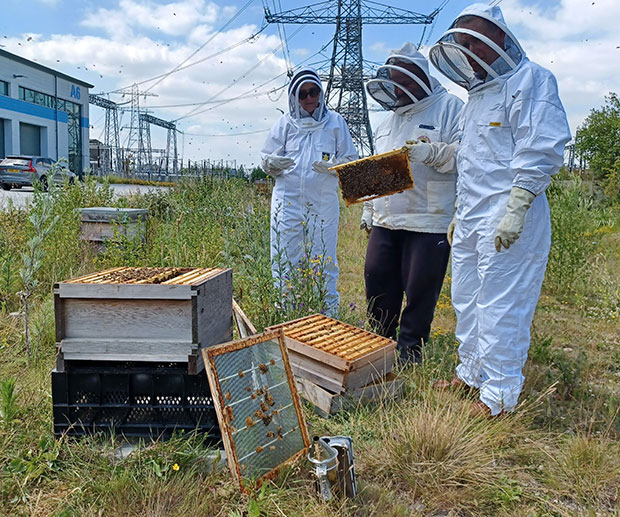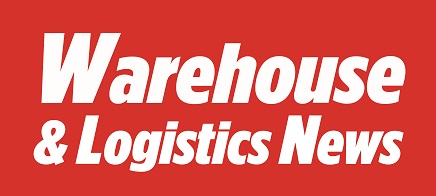The strapline at Aztek Logistics says “more than just transport,” says UKWA CEO Clare Bottle on visiting the site. Starting out over 20 years ago, CEO Stuart Charter rented some land on a farm and operated his fleet from there. But after moving in 2008 to a 7-acre site they bought a year later, storage became an equally important part of the business. Today, Aztek has different clients for contract storage of imported pasta and tinned tomatoes, leading to jokes about the Mediterranean recipes that could be cooked up here. Self-storage has also proved to be a lucrative side-line.
 As an ex National Grid site, with the remnants of a gasworks underground, there is some kind of irony in the installation of solar panels. Despite the weather being overcast on the day of my visit, Stuart showed me the graphic display on his computer screen, indicating that the system often produces far more electricity than the site can consume. Broadcaster Tom Heap recently wrote about this in his new book Land Smart, saying “making useable energy from the light that falls on a warehouse is one of the most obvious and productive multifunctional land uses”.
As an ex National Grid site, with the remnants of a gasworks underground, there is some kind of irony in the installation of solar panels. Despite the weather being overcast on the day of my visit, Stuart showed me the graphic display on his computer screen, indicating that the system often produces far more electricity than the site can consume. Broadcaster Tom Heap recently wrote about this in his new book Land Smart, saying “making useable energy from the light that falls on a warehouse is one of the most obvious and productive multifunctional land uses”.
Aztek is based in the heart of Letchworth, which was the UK’s first garden city, founded by Ebenezer Howard in 1903, to create an urban utopia where people could live in harmony with nature. Today, these principles are more commonly found at warehouses than one might expect. For example, at London Gateway, which I wrote about in a previous issue of WLN, DP World has incorporated wetlands and meadow flowers into the logistics park. And earlier this year DHL formally opened their Carbon Neutral facility in Coventry. Like Rhenus Warehousing Solutions, which won the 2023 UKWA Award for Excellence in Sustainability, they have air source heat pumps, solar panels and EV charging stations. This year’s winner of our sustainability award was DSV, whose remake services promote a circular economy whilst they support biodiversity with bug hotels, tree planting and beekeeping.
During an earlier visit to Tritax at Dartford, I was privileged to don a beekeeping suit and meet the local residents: one million bees. It was interesting to learn from the beekeepers that this location has proved an especially valuable apiary. These are designated sentinel hives, subject to regular surveillance. Due to their strategic location near the Port of London, the bees at Dartford are most susceptible to incoming exotic diseases, which can be spotted here and potentially halted before they infect colonies elsewhere in the UK.
Logistics really is about “more than just transport”. Of course there are warehouses, with storage and an ever-increasing range of added value activities, but there are also opportunities to improve the working environment, foster biodiversity and generate renewable energy. The specific programmes now underway might never have been planned by Ebenezer Howard, but he famously said “I plainly see time and its evolutionary processes fighting ever on my side”, so perhaps, after all, this is exactly the kind of future he imagined.





Comments are closed.